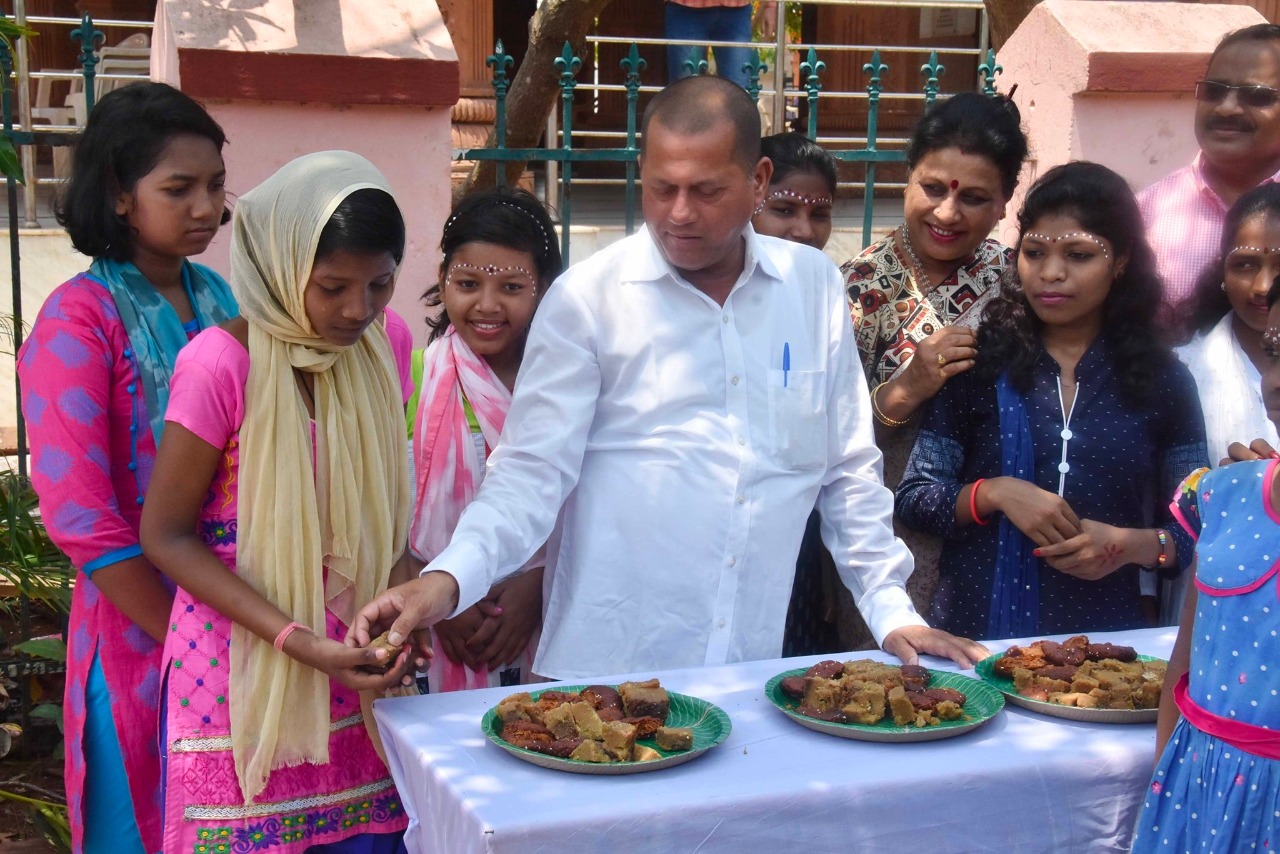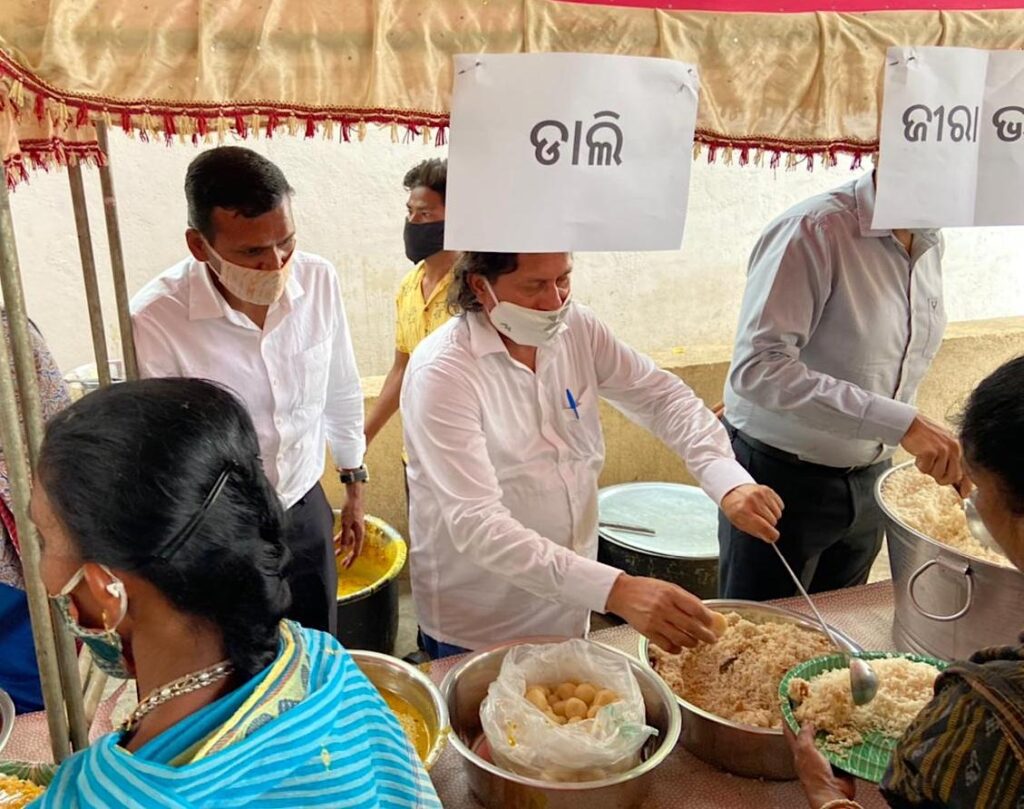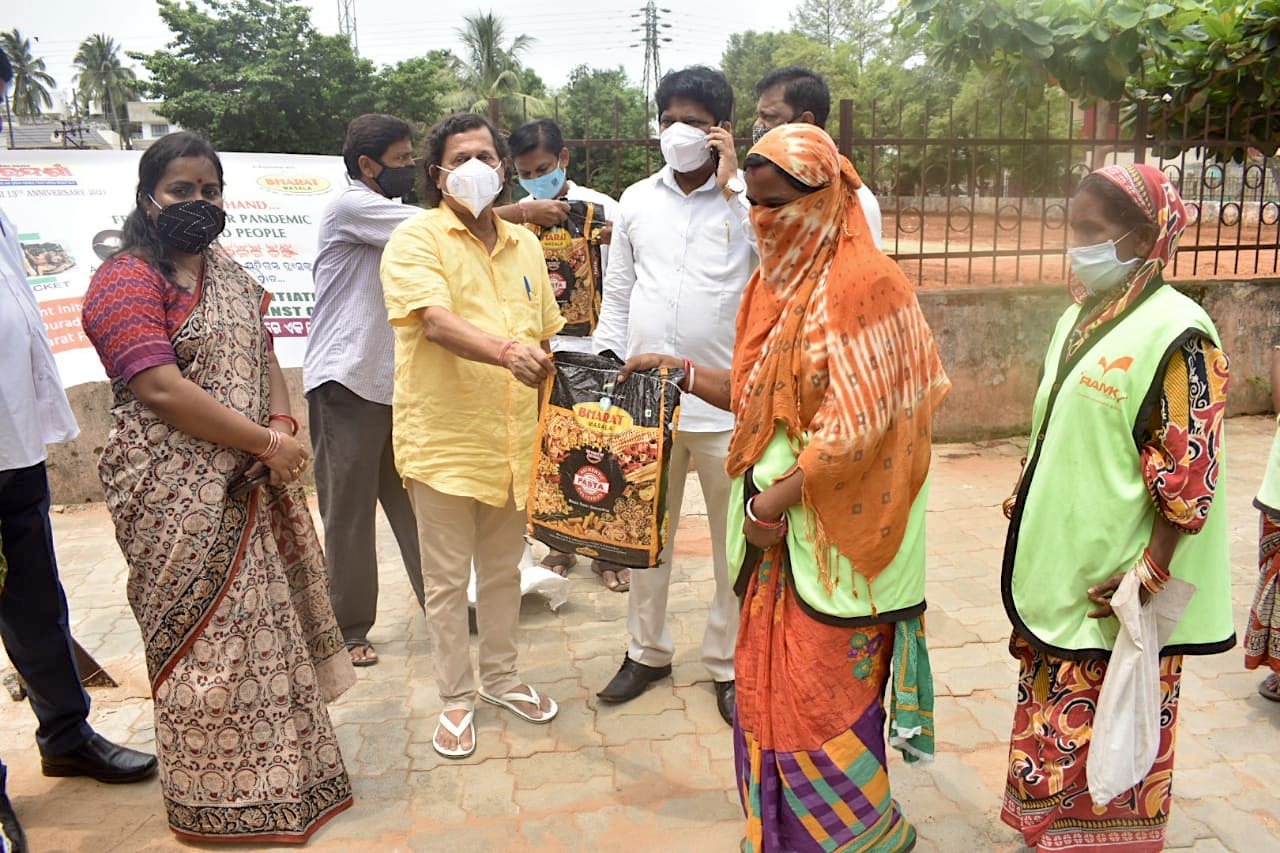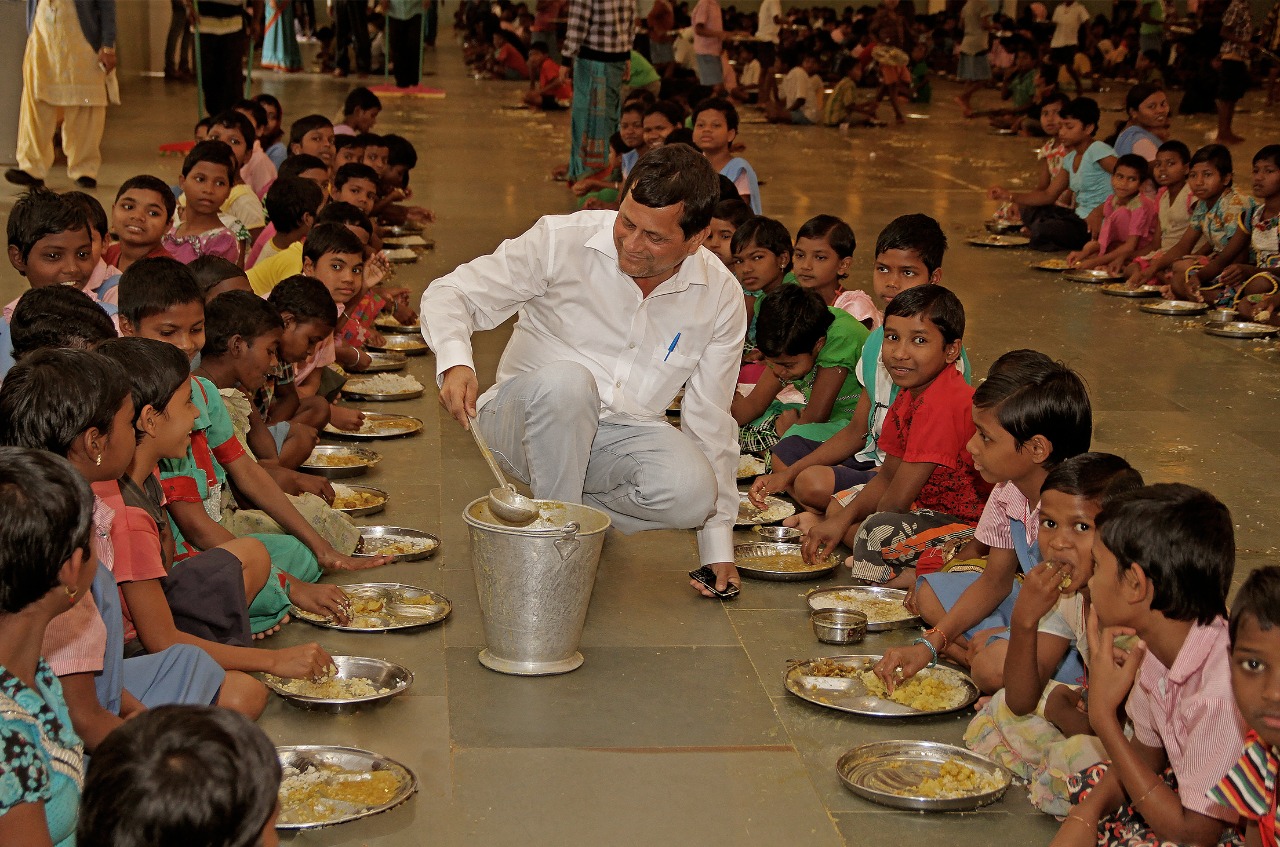16th October marks the World Food Day. Initiated by the Food and Agriculture Organisation of the United Nations (FAO) it is one of the most celebrated days of the UN calendar to bring awareness to how our changing planet affects food production and distribution. Various interrelated issues like climate change, migration, food security, poverty, agricultural practices, eating habits and food wastage are explored, discussed to give a guideline for way ahead.
The importance of food is obvious and crucial. Healthy food provides us with the nutrients and energy to develop and grow, be active and healthy, to move, play, work, think and learn. Beyond its function for nutrition, it is an emotional and social act. While many take food for granted, millions struggle to get two meals in a day. To understand the value of basic food, ask the hungry.
I feel immensely disheartened that India has slipped to the 101st position in the Global Hunger Index (GHI) 2021 of 116 countries, from its 2020 position of 94th. Food security is under attack on numerous fronts adding that worsening conflict, weather extremes correlated with global climate change, and the economic and health challenges associated with Covid-19 are all driving hunger. But we have to urgently take steps in a way that no one is deprived of food. It may sound difficult, but it is not impossible. It requires individual support and concern towards the ones less privileged but also a willing government action backed by transperancy, just like Odisha.
Hon’ble Chief Minister Naveen Patnaik launched the Re 1 a kg rice scheme for the poor in Odisha from the backward and tribal-dominated districts of Odisha. The scheme provides rice at Re 1 per kg to people living below the poverty line (BPL) as well as Scheduled Castes, Scheduled Tribes, disabled and beneficiaries of the Antyodaya scheme. It has assured food security in Odisha.
Amidst such dismal statistics, Kalinga Institute of Social Sciences in Bhubaneswar stands out tall in its endeavor towards sustainable alleviation of poverty and hunger using holistic and quality education. This wholly residential educational institute and home for 30,000 tribal children provides free education from Kindergarten to post graduation along with lodging and boarding and comprehensive health care. 20000 students have already graduated from this institute and have been proving to be change agents for their respective communities, definitely well to do.
The institution was conceived and established modestly by us. In my teenage, I had to grow and sell vegetables in the far off weekly markets and do errands for village folks to make some living and augment the meagre family income. I assisted my widowed mother in the very cumbersome custom par boiling of paddy. My father, who was an industrial labourer, had died in a train accident bequeathing endless poverty and pain for the family of seven siblings and a widowed mother and to live in an obscure village when I was barely four years old. Backed by our experience, we can empathetically work towards zero hunger. My struggle against poverty is still on. Earlier in life I had to struggle for my own food and survival and later I grew up and ever since I have been struggling to arrange food for thousands of poor children at KISS. The institute, while having ensured zero hunger for thousands of poorest of the poor tribal children, has fulfilled the erstwhile Millennium Development Goals of the UN and now addressing Sustainable Development Goals under UN’s vision 2030.KISS & KIIT has also provided food relief to the marginalized and the needy for the last two years of ongoing pandemic.
To sum up, Let’s fix the system – millions of people are hungry or undernourished, while large numbers are chronically overweight due to a poor diet. Smallholder farmers produce more than
one-third of the world’s food, yet are some of the worst affected by poverty, as agriculture continues to be an unpredictable and often unsafe sector.
Our agri-food systems are broken, and there has never been a more urgent need to transform the way the world produces and consumes food.We can all be Food Heroes & reduce our food waste to help
☕️fight food insecurity
🌎protect precious resources
👣reduce our carbon footprint
💰save money & energy
🦸consume more consciously
On World Food Day let us pledge to do our part to end hunger and alleviate poverty wherever it exists and never waste food.






Food is vital for survival and food westage is a crime…The previlleged and high income group have to realise this to ensure food security to the deprive under previlleged group..I take an oath to work for food security to one and all..👍🙏
We know significance of food is primary factor and crucial. KISS, Bhubaneswar Always plays a vital role.Its holistic and quality education teaches towards sustainable alleviation of poverty and hunger.
we should always keep it in our mind ‘Never waste food’.
Very insightful sir ..
Food is not only a necessity but a human right as well. It heartening to witness the initiatives KIIT & KISS to eliminate hunger and ensure holistic development of all.
Sir, your able leadership and heart of gold is an example as always.
Pranam
The significance of food is obvious and crucial. KISS, Bhubaneswar with its holistic and quality education plays a pivotal role towards sustainable alleviation of poverty and hunger.
we should always keep it in our mind ‘Never waste food’.
We know significance of food is primary factor and crucial. KISS, Bhubaneswar Always plays a vital role.Its holistic and quality education teaches towards sustainable alleviation of poverty and hunger.
we should always keep it in our mind ‘Never waste food’.
Food is necessary of everybody so don’t waste food.
Though food is essential to survive, the author of the script, Dr Achyuta Samanta Sir, Hon’ble Founder, KIIT Group of Institutions, concludes, “Eat to Live and in no case, Live to Eat”.
Heartiest salute to the ethics submerged in the Article.
O/o DyCoE & O/o Dean
School of Civil Engineering
Though we can write many beautifully articulated statements on hunger,food security and poverty, only a person who has gone through these hardships can understand the true meaning of these words. thank you so much Achyuta Samanta sir for working hard continusly on these issues. I salute you. 🙏
Nice 👍
You are always been an inspiration to thounds.Thank you Sir for sharing your experiences. There are lots of things to learn.Very much inspiring.
You are always been an inspiration to thounds.There are lots of things to learn.Very much inspiring.
Food is essential for living, in India many people don’t get a meal in a day, but I saw in many marriage, reception, in school and College party so much food waisted. So if each and every human body take promise to save this type of food waist and learn their future body for don’t waist food.
We know significance of food is primary factor and crucial. KISS, Bhubaneswar Always plays a vital role.Its holistic and quality education teaches towards sustainable alleviation of poverty and hunger.
we should always keep it in our mind ‘Never waste food’.
I read sir is very much inspiring , his concern for those want to survive and struggle for life is really so heartening.
Prof. Achyuta Samanta Sir, Hon’ble Founder, KIIT Group of Institutions, concludes, “Eat to Live and in no case, Live to Eat”.
Heartiest salute to the ethics submerged in the Article.
Thanking you
Regards
Shiva prasanna lenka
Food is always a vital part of a human life…Many are dying of hunger..what Founder KIIT & KISS Samanta Sir has been doing to eradicate hunger ..poverty…Thanks for writing this from ur heart…
Eradicating hunger and providing food to the needy is something that Dr Samanta has been striving for a d we should all join hands in this noble mission of Food For All
Food a gift to mankind reason of survival.
Sir you always inspire us with new methods of serving mankind.
As Food is the bare necessity of everyone so it’s security is of paramount importance..
Really great humanitarian work, food is a necessary for all. But great need for the needy poor person. KIIT and KISS Hon’ble Founder Dr.Achyuta Samanta provides healthy foods to needy children regularly. Truly great 🙏🙏🙏
Sir you are truly inspiring 🙏
wonderful story sir….inspiring.
Great thought with great work of a great man🙏🙏🎉💐
Really great humanitarian work, food is a necessary for all. But great need for the needy poor person. KIIT and KISS Hon’ble Founder Dr.Achyuta Samanta provides healthy foods to needy children regularly. Truly great 🙏🙏🙏
Everybody has some responsibilities to help the needy and the deprived one in the society. There are so many ways to join for this noble cause so we should come forward to join this group and spread this noble contribution and message of our beloved Sir. 🙏
We all must taka a pledge today “Never waste food”. A very much good advice to all of us by our beloved founder sir because food is primary and essential commodity for everyone
As food is considered as everyone’s basic rights it’s wastage is absolutely a great loss for human lives. Wastage of foods should be made with proper planning so that a large number of hungers will able to fulfill their necessity.
Food is considered as everyone’s basic rights and it’s wastage is absolutely a great loss for human lives. Wastage of foods should be checked with proper planning so that a large number of hungers will able to fulfill their necessity.
Wastage of food should be controlled effectively through general public so that a large number of hungers would be fulfilled their basic needs.
The word Food describes how important it is in our everyday life of human being. Whether poor or rich, hunger is same for every one. Poverty plays an important role for choice of food. To eridicate poverty education plays an important role. The article is very timely and we’ll written.
Significance of food is primary factor and crucial.“Eat to Live and in no case, Live to Eat”.
We must not waste food. A number of people are struggling to get proper food
Nature gives us food to eat; not to waste. Salute to you Sir for providing nutritious food to thousands of underprivileged tribal children at KISS.
We can have community fridges installed where , instead of throwing away excess/ leftover food, can be used by the needy people.
Highly inspiring & excellent read
Such an important and insigtful article. Thanks for sharing sir.
Hon’ble Founder Sir’s message on World Food Day i.e 16th October is very timely & thought-provoking. We should avoid wasting precious food when millions the world over go hungry. In our small ways, we can make food available to the hungry beings next door on this rearth.
Hon’ble Founder Sir’s message on World Food Day i.e 16th October is very timely & thought-provoking. We should avoid wasting precious food when millions the world over go hungry. In our small ways, we can make food available to the hungry beings next door on this earth. Let’s try to make the earth hunger-free & improve our country’s image.
Sir,Your effort to minimise poverty and provide food to the hungry through KISS which provides food,shelter and education to more than 30 thousand tribal students is really adorable.
India is an ancient civilization and we have been prudent about food for millennia. Our parents and grandparents, too, once approached food and cooking with the same prudence. Yet, somewhere along the way, we lost sight of this “waste not, want not” mentality. Salute to our Honorable Founder Sir.
OUR FOUNDER, OUR PRIDE… A GREAT LESSON…
Food is essential for everybody to survive. Because of erratic climate of the environment, agriculture is highly unpredictable now-a-days for which farmers are unable to produce sufficiently in spite of their best effort. Therefore it is duty of everybody to use the food sensibly without wasting it. Simultaneously agriculture sector should be encouraged constantly with all supports to end hunger.
Food is a essential commodity for the existence of Human life . Our Honorable Founder’s feeling towards hunger is always idealistic .
Your efforts in eradicating poverty and hunger are really one of the humanitarian works of all time. May the Almighty keep His blessings on you and us.
Every day too many men and women across the globe struggle to feed their children a nutritious meal.
Goal 2 – Zero Hunger – pledges to end hunger, achieve food security, improve nutrition and promote sustainable agriculture, and is the priority of the World Food Programme.
🙏🙏🙏
#WorldFoodDay
We should not waste food. We know the requirement of the food for the people who are not getting two meals in a day.
We should not waste food. We know the requirements of the food for the people who are not getting two meals in a day.